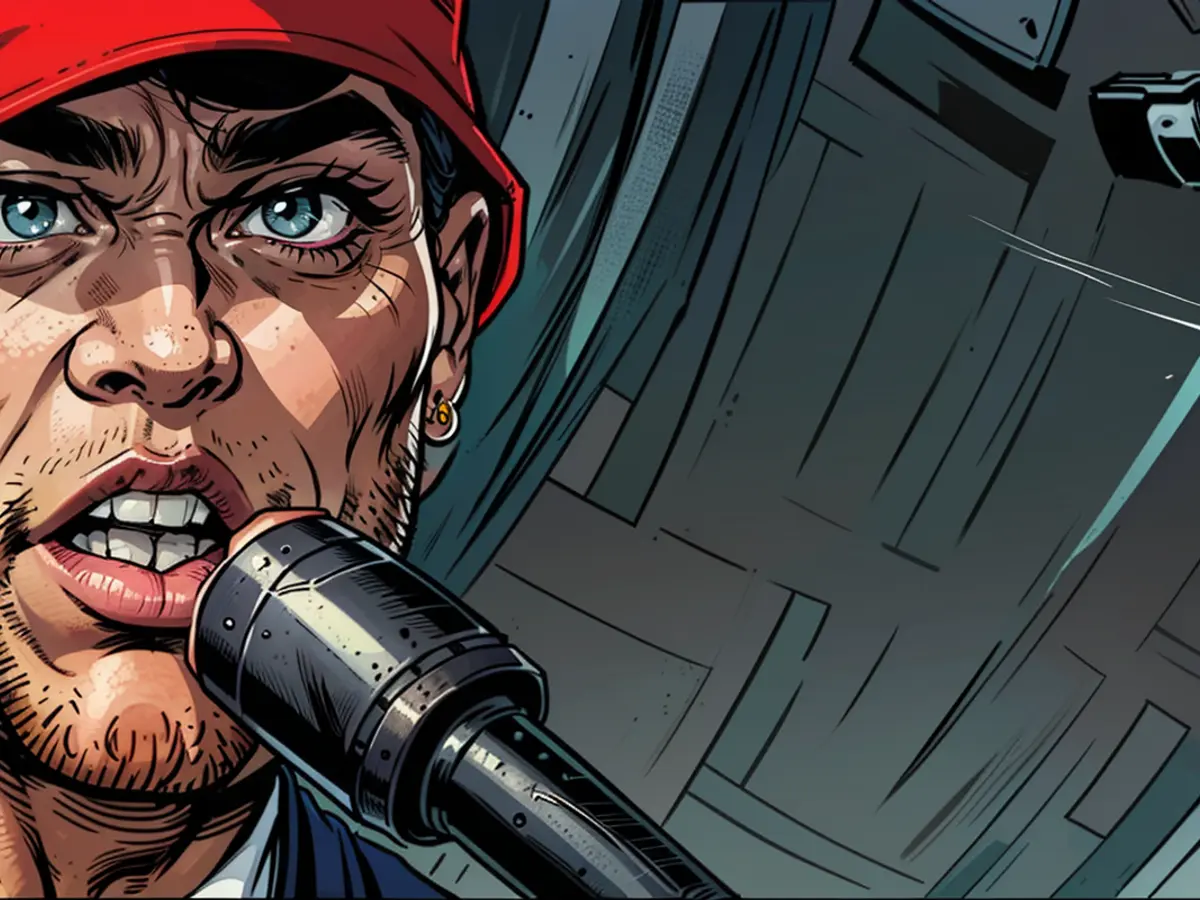Trump possesses the power to initiate prosecutions against his adversaries.
If Trump regains the White House, many could find themselves in his crosshairs for potential retribution. This power stems primarily from the Department of Justice.
During his first run for president, Trump's supporters cried out for Hillary Clinton's imprisonment. Now, as a Republican, Trump is pushing for Biden's prosecution due to alleged corruption, Pelosi's investigation over her husband's stock trades, and Harris's examination over immigration concerns at the U.S.-Mexico border. He's also threatened to probe Google, accusing the search engine of favoring "negative" pieces about him and positive articles about his competitor, "Comrade Harris." Just last month, he issued veiled threats towards Democrats in general.
It's challenging to decipher Trump's true intentions – is this all just campaign tactics, or does he genuinely intend to target his foes with legal actions? If he being reinstated president, he lawfully possesses the power to fulfill these threats. There exist lists cataloging his pledges. While the U.S. Department of Justice maintains a certain level of independence, it isn't legally guaranteed. The only means to keep presidents from interfering with criminal investigations is through self-regulation.
What can we anticipate if Trump secures a second term? According to the "Wall Street Journal," Trump's primary objective would be to dismantle the Department of Justice. He's had a tumultuous relationship with the department throughout his initial term, urging them to investigate on his behalf. If he gains office again in 2025, he could employ the Department of Justice as his revenge tool. The Attorney General also holds the position of the top law enforcement official in the U.S.
Aligning the Ministry with Loyalists
To make the Department of Justice a faithful ally, Trump would nominate a loyal Attorney General and other high-ranking figures. Upon Senate confirmation, they would oversee the FBI and the federal prosecutor's office. Even if Congress manages to block him, Trump can subvert this with a recess appointment. During his previous term, Trump replaced FBI Director James Comey with Christopher Wray, who remains in charge.
Nearly two million civil servants maintain their independence, with only about 4,000 political appointments happening with each government change, according to "New York Times" research. It all boils down to whether individual employees exhibit backbone and risk their careers by nearing the president.
Trump can also weaponize this sector: in the lead-up to the 2016 election, he issued a decree ordering presidential appointments to be made based on political allegiance. This was not realized due to Biden's victory, but if Trump secures another term, he could revive this rule, tag staff in agencies up to mid-level positions, and gradually replace them with loyalists.
Investigations as a Tool
This sets the stage for potential investigations against political adversaries, directed by a prosecutor. Even if these proceedings lead to nothing, they can generate harm, such as costly legal defense fees. Protecting oneself from indictment may require FBI employees or prosecutors to intervene, such as citing a lack of evidence or submitting confidential information to Congress under the protection of the Whistleblower Act.
Pardons as a Shield
Absent substantial evidence and an ultimate indictment, investigations can persist for substantial periods – due to the president's broad authority within his office. Prosecutors could also take sworn testimony in federal courts, where judges might be sympathetic to the president's agendas, as they are appointed by the president.
Upon indictment, a jury assesses whether the trial is justifiable, which is usually the case. Then, a judge clarifies the parameters of the trial, decides on allowable evidence, might order raids, or can terminate proceedings if they deem the indictment politically biased. If the trial ends in a guilty verdict, the defense can appeal, leading potentially to the Supreme Court's review. The Supreme Court leans conspicuously conservative, with three of its nine judges appointed by Trump.
If employees balk at submitting to Trump's orders, he could provide assurances that he'll protect them from retribution. A U.S. President is granted the authority to pardon, even before trials commence. In his first term, Trump utilized this power extensively, granting 116 of his 237 pardons in his final days in office. These included individuals like Roger Stone and Trump's former advisor Steve Bannon.
Since the Supreme Court determined in July that presidents encompass extensive immunity, Trump might also be protected from subsequent misuse of such pardons. However, the Supreme Court's rule applies to all U.S. presidents, acting as a safeguard for Biden as well, albeit slightly. Everybody else should tread cautiously so as not to antagonize Trump.
If Trump successfully wins the US presidential election in 2024, his plans for former political adversaries remain unclear. However, with a potential second term, he could revisit his earlier threats of legal action against figures like Biden, Pelosi, and Harris. Furthermore, should Trump once again hold the presidency, he may utilize the Department of Justice as a tool for retribution, nominating loyal individuals to key positions within the agency.








